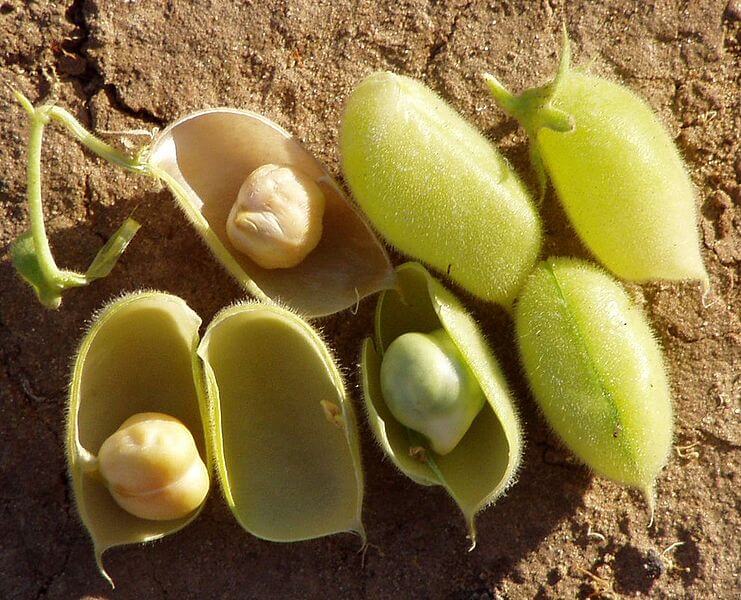An improved legume strengthens Ethiopia's economy
 Ethiopia is an island of relative peace in an unstable region. In 2011, the US Agency for International Development called for expanding the Ethiopian economy and increasing its agricultural yields as part of the effort to stabilize East Africa.
Ethiopia is an island of relative peace in an unstable region. In 2011, the US Agency for International Development called for expanding the Ethiopian economy and increasing its agricultural yields as part of the effort to stabilize East Africa.
One major crop, hummus (Cicer arientinum), is at the center of the agency's activities. Hamza grains are consumed worldwide to make hummus spread for food and also as a nutritious ingredient in food supplements given to people in famine-stricken areas, and the demand for them is growing. Also, hummus is a relatively sustainable crop: it acts as a natural fertilizer because it fixes nitrogen in the soil and needs less water than other common crops such as the common teff grain in Ethiopia.
Credit: Ofok Zivna iStockphoto
Ethiopia is already the largest grower of chickpeas in Africa, but the researchers wanted to develop seeds that would germinate and grow more efficiently. In August 2006, a study conducted by scientists from the International Institute for Agriculture in Semi-arid Tropical Regions (ICRISAT) was published in the Journal of Agricultural Research in Semi-arid Tropical Regions (ICRISAT) in which they identified desirable traits from 20,000 versions of the chickpea plant's genetic code. This allowed them to breed more drought and disease resistant plants that reach maturity faster. Instead of improving the plants with biotechnological means, the scientists used traditional hybridization techniques, which are effective and yet cheaper. ICRISAT researchers are using the same techniques to improve other crops in several developing countries. Tanzania, Sudan, Kenya, Myanmar (Burma) and India are all enjoying improved chickpea, dal, peanuts, millet and sorghum crops.
The impact of the improved chickpea grains is already evident: the chickpea harvest in Ethiopia increased by 15% from March 2010 to March 2012. Farmers sell whole and dry grains to local markets, where they are sold as snacks or ground into flour. The developing export also meets the growing demand for chickpeas in the world. The Pepsi Company, the partner [with the Israeli Strauss Company - editors] in the ownership of the salad manufacturer Sabra, collaborated in 2011 with USAID and the United Nations World Food Program in order to facilitate Ethiopian farmers' access to the improved chickpea seeds and to train them in the methods of sustainable agriculture. As sustainable as drip irrigation. Timothy Dorgan, of ACDI/VOCA, a non-profit organization that deals with development and participated in the implementation of the agricultural aid that USAID provided to Ethiopia, says that "improving [agricultural] methods should allow Ethiopia to increase exports and also improve and meet local demand."
